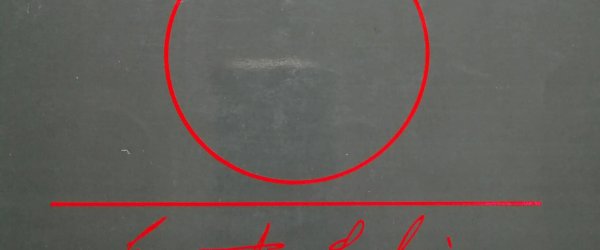
Picture by Anna Guardiola
This short and beautiful work originally composed for baritone saxophone solo is, as composer says, “the sounding result of a personal reflection upon the relationship between man and nature”. I love to play music by composers committed to their time.
The Composer
As a composer, ENRIC RIU (Barcelona, 1968) is a fervent supporter of multidisciplinary projects. He actually focuses in the possibilities of improving the communication between the composer and his audiences by means of co-creation with the performers. In order to investigate in this field, he usually works with renowned ensembles like Morphosis Ensemble, Fonema Consort, Proyecto Hélade, Ensemble CONCEPT/21, and outstanding interpreters like double-bassist Kathryn Schulmeister, saxophonist Joan Martí-Frasquier, marimbist Adilia Yip, flutist Marc Horne, clarinetist Emily Beisel and pianist Tomeu Moll.
Enric Riu has combined his composition activities with teaching, working as Musical Analysis instructor in centers as the Conservatori del Liceu, the Conservatori Professional de Música in Vilaseca and the Institut Andorrà de Música i Dansa in Andorra la Vella, among others.
Click here to read more about the composer.
Details of the work
Publisher: Contact the composer (enricriu@yahoo.es)
Duration: Around 4:00
Range (written): Bb2 – Db5
TECHNIQUES: Wide range of dynamics and timbres, breathing control (circular optional), bisbigliandi, multiphonics, diversity of articulations, slaps, flatter, air sounds, growl, use of voice, bend and overtones.
PERFORMANCE: To play with expressive energy and scenic attitude, search of timbers. To play it as an improvisation.
Meaning and Structure of Solitudini
[SOLITUDINI] is the sounding result of a personal reflection upon the relationship between man and nature.
To the extent that we take part of systems, we are vulnerable either favoured. Often, fate depends on our own work: when we sow, we expect the plants. However, we cannot exercise any control on other facts, as sunrise. Man needs balance with the natural system if he does not want to see annihilated himself.
Baritone saxophone seemed to me as a perfect instrument to explain an intimate experience, then. This work has no intention of testing the virtuoso performer abilities or the possibilities of the instrument, but it has been conceived thinking a lot about them. First of all, it is a message addressed to a listener. (Enric Riu, 2012)
This intense work for baritone saxophone solo could be structured into three parts. The first section is slow with some fast excerpts that lead to a central section with great dynamism and with very marked contrasts. The third one is very slow (almost contemplative) and mainly results in the low register of the instrument.
SOLITUDINI is very demanding in terms of control of sound to make big contrasts with dynamics. You will need to play really soft (between P and PPPP), especially in the low register. Their polyphonic elements (overtones, voice and multiphonics) are very well done. However, they are not always easy to play because of the changes of dynamics.
Furthermore, the frequent measure changes and irregular groups of notes (7:5, 5:3, etc.) give a kind of instability to the piece. All this, combined with the contrasts of dynamics, contributes to give the idea of an improvisation.
Take into consideration that Enric Riu is very concerned with the communication and empathy between performer, audience and composer. In concert, seek the balance for a good reading and a good transmission of contents without sacrificing the quality of the interpretation.
I premiered SOLITUDINI at Barcelona Mixtur Festival in April 2013 in the presence of the composer. In 2015, I included it in my first solo album BELIEVER (INS Records, INS-01).
—
Would you like to know more about SOLITUDINI by Enric Riu? Would you like to work on it with me? Don’t hesitate to contact me for more questions.
Joan Martí-Frasquier
Barcelona, October 2017
Update: November 2024

![15 Advanced Works for Baritone Saxophone [1] 15 Advanced Works for Baritone Saxophone [1]](https://joanmf.com/wp-content/uploads/elementor/thumbs/15-Advanced-Works-for-Baritone-Saxophone-1-ra3ttwqci012qs6fqnu49f7x6h6nihiw6j1idodd50.png)



